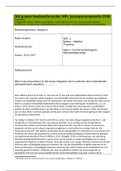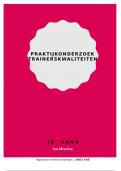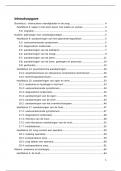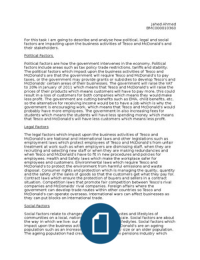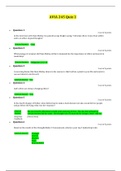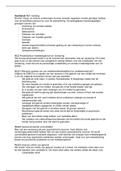What is economics?
Economics is the study of how humans choose to use (or allocate) the limited or
scarce resources they have available in order to produce what they want and need
Economics studies the decisions individuals make in an economy given their limited
resources
The economy is a system of many individuals making decisions and choices
Economics as a social science
Natural sciences include physics, chemistry and biology and they focus on the real
world
Social sciences focus on how people interact and develop as a culture
Key difference between social and natural sciences
In natural sciences it is easy to conduct controlled experiments
In social sciences it is more difficult because we cannot easily isolate variables as we
are observing the actions of humans
Its tough to pin down the cause or action of someone’s behaviour
o E.g. the reasons for someone saving money could include:
Saving for the future
EXAMPLE OF SIMPLIFICATION - using
In case they lose their job
a world map
To be able to afford new things
Globe= reality
Emergency funds
Map= simplification
o These are all valid reasons
Pro- helps us to see the borders
In economics, we observe very large systems
between countries
(e.g. finance, healthcare and education)
Con- can’t measure distance as its not
One way of overcoming the complicated
to scale
observations is by using simplification
Ceteris Parabus
Ceteris Parabus is Latin for "all else being equal" an assumption in economics that
allows you to focus on one thing
Its where economists hold all other variables constant and measure the effect of just
one variable
e.g., with chocolate. We can hold all the factors constant and allow one factor to
change e.g., price
o You can say "ceteris Parabus, if the price goes down people will buy more
chocolate" as well as "ceteris Parabus is the weather is hotter people will
buy less chocolate"
Positive and normative statements
If a statement can be scientifically tested to be correct or incorrect it is known as a
positive statement
A statement which cannot be verified using a scientific approach is known as a
normative statement
, o These are based off value judgement and cannot be refuted using scientific
evidence
o A normative statement is normally a statement on what “ought to be”
o It will include words such as “should, ought, fair, better worse”
o Therefore, statements are subjective
o E.g., “the rich should be taxed more” “iPhone make people worse off”
Value judgements
Made by assessing which measures matter the most
E.g., “Heathrow’s third runway will reduce people’s quality of life” is a normative
statement because a number of factors/ measures are used to calculate quality of
life:
o Economic growth
o Impact on environment
o Happiness
o Rise or fall in imports
You cannot tell which measure is most important as it is subjective
Economic policies are influenced from value judgements which are evaluative
statements made by economists about how good or bad they think an idea is
The economic problem
We have limited resources and unlimited wants. This issue is known as scarcity
Needs are things that are necessary for human survival. E.g. food, water, shelter
Wants are things that people desire, but are luxuries they can live without
Extra: Maslow’s hierarchy of needs
It can be difficult to classify a good as a
want or need
We need to consider the motives that go
into buying the product
For example is a book a want or need?
Enjoyment (want)
For education (need)
What can money not buy?
Love/ friends
Nature
Health
Community/ sense of belonging- culture
Safety
Education
Economic resources
Production is the process by which various inputs are transformed into outputs
The inputs are factors of production
The outputs are economic goods

